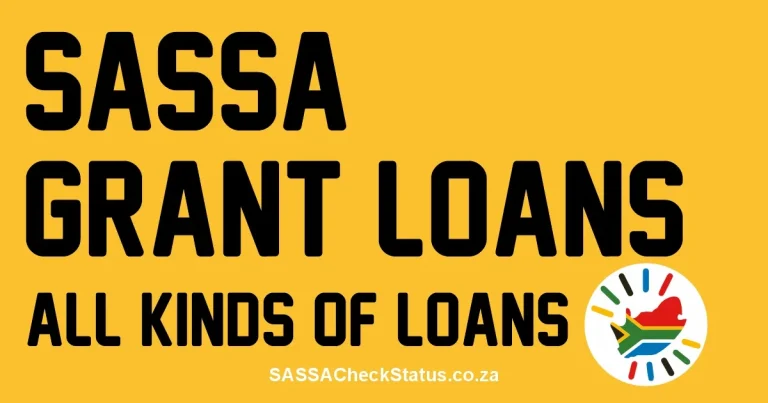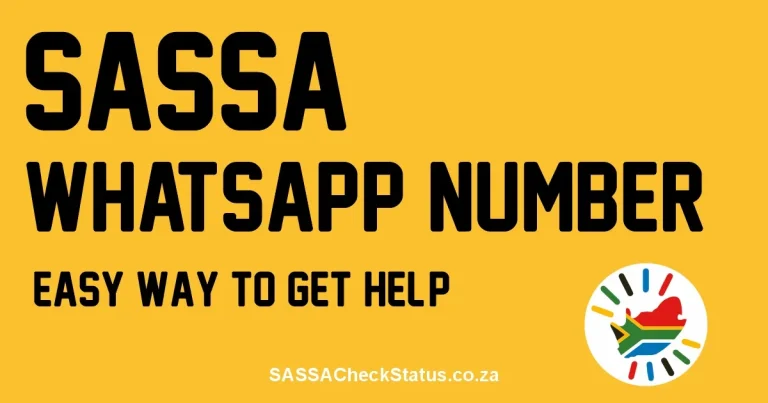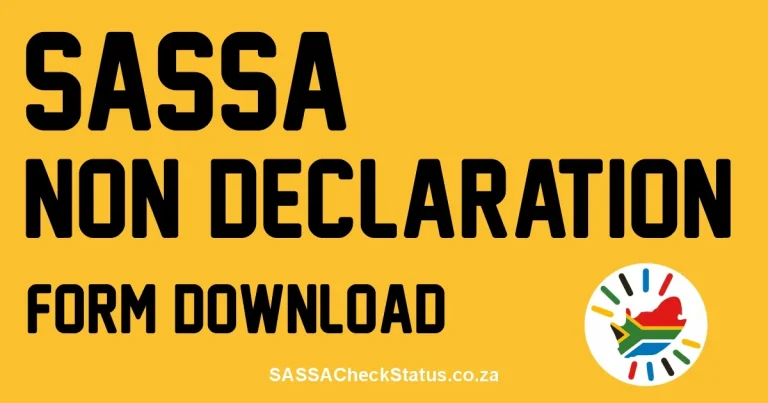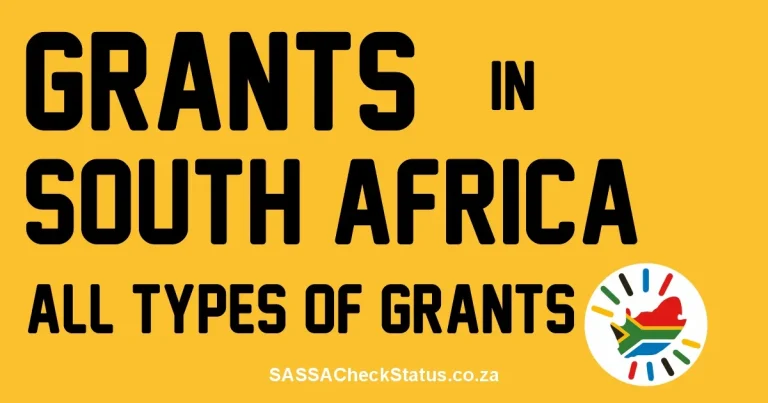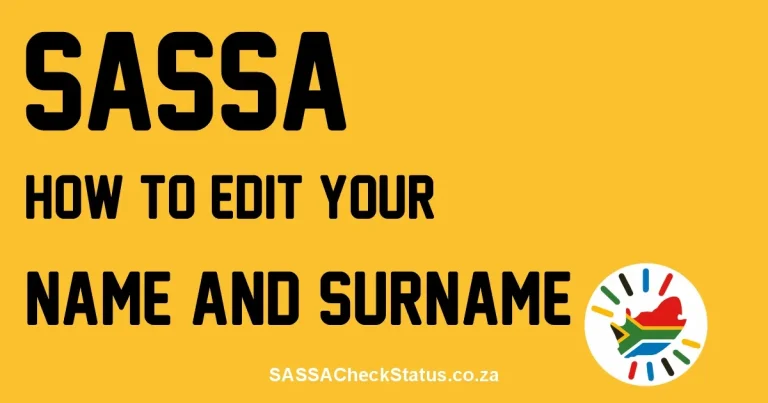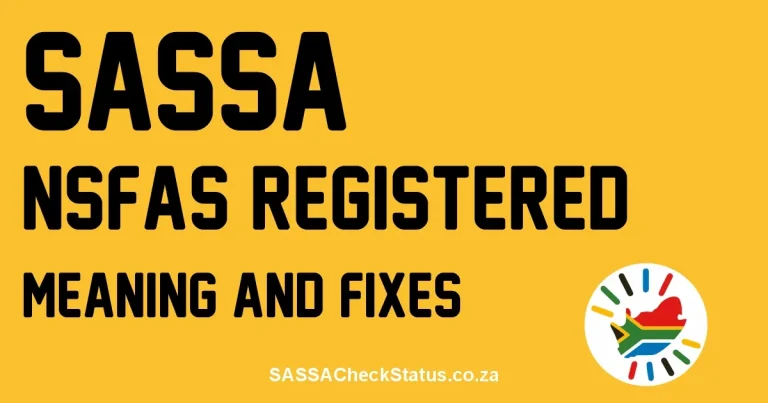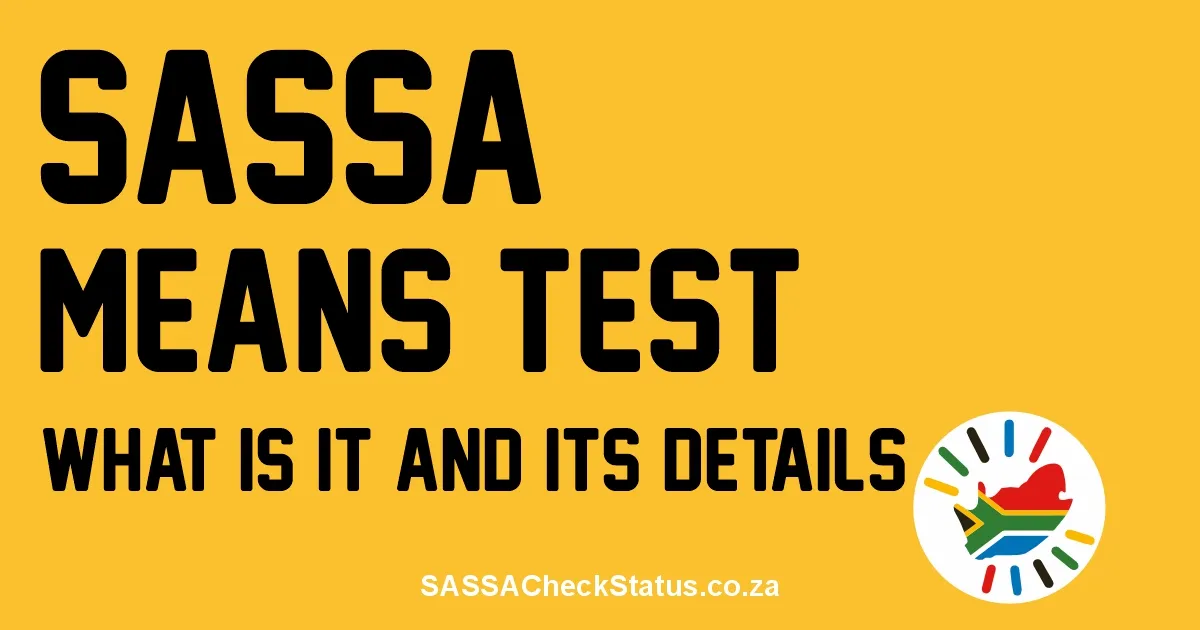
The SASSA Means Test decides if you qualify for a social grant in South Africa. This test looks at how much money you make and what things you own to make sure the money goes to people who need it and don’t have enough money to manage on their own. Understanding this test helps you know if you can get help from SASSA.
What Is SASSA Means Test
The SASSA means test is synonymous to the eligibility test for a SASSA grant. The SASSA means test is a test that the South African Social Security Agency takes from applicants to check their eligibility for receiving SASSA grant. SASSA uses this test to make sure grants go to people who really need financial help.
The Means Test calculates the applicant’s financial status, including their income, assets, and other financial factors, to ensure that only deserving individuals receive the grant. If your income or assets are too high, you won’t qualify for a grant.
SASSA Income Limits for Different Grants
Old Age, Disability and War Veterans Grants
A single person should not be earning an amount greater than R8 070 per month (R96 840 per year). A married couple should not have a collective income of more than R193 680 per year (R16 140 per month).
Child Support Grant
For child grants, you don’t earn more than R61,200 a year (R5,100 a month) if you’re single. If you’re married, your combined income shouldn’t be above R122 400 a year (R10 200 a month).
Care Dependency Grant
Applicant parents must not earn more than R250 800/year. Also, the applicant’s parents must not earn more than R20 900/month.
SRD R350 Grant
To qualify for the SRD grant your income threshold should be less than R624 in your bank account. SASSA checks your bank balance every month for this grant.
SASSA Asset Limits You Need to Know
Old Age, Disability and War Veterans Grants
A single person should not own assets valued at more than R1 372 800. Combined assets of a married person with their spouse should not be worth more than R2 745 600.
Child Support and Care Dependency Grants
The Child Support, Care Dependency, Foster Child Grant, and SRD Grant are all need-based grants and do not require the means test for assets. This means SASSA doesn’t check how much you own for these grants.
What Counts as Income for SASSA
The following are considered as an income according to SASSA: Compensation from other sources like UIF (Unemployment Insurance Fund), RAF (Road Accident Fund), or COIDA (Compensation for Occupational Injuries and Diseases Fund).
SASSA also counts these as income:
- Your salary or wages
- Pension payments
- Money from business or farming
- Rental income from property
- Financial help from family or friends
- Investment returns
What Counts as Assets for SASSA
SASSA means test considers the following as assets: Money in your bank account. If married, money is in your or your spouse’s bank account. The value of the property or any land that you and/or your spouse possess, except the land or house in which you live.
Other assets include:
- Investments like shares
- Any other property you own
- Retirement annuities (if you already retired)
Important: Properties or land with an outstanding bond are considered to have no value. Your main home where you live doesn’t count as an asset.
Retirement Fund Rules
If you have not yet retired from a retirement fund, your annuity will not be considered an asset for the means test. If you are retired from a retirement fund, your annuity will be included as an asset for the means test.
Married vs Single Applicants
The assets and income of a married person are calculated collectively with their spouse. It doesn’t matter if you married in community of property or not. If the applicant’s spouse already receives a social grant, their grant is NOT counted as income in the application.
If your spouse has deserted you for more than 3 months, then the marital status of the applicant is not taken into account for the means test.
How SASSA Checks Your Means Test
The SASSA doesn’t only review your financial status or income means one time only, the team periodically keeps checking your financial means from the team to make sure of your eligibility. They check monthly to make sure you still qualify.
SASSA Means Test determines the monthly eligibility of recipients based on income and asset thresholds, evaluating the combined income of spouses. It validates new SASSA applications and checks each beneficiary’s bank balance to influence monthly grant eligibility.
When Income Limits Change
The income and asset limits get updated and published every 1st of April and October each year. Starting July 2025, SASSA will implement new income thresholds starting July 2025. This change aims to widen access to social grants, enabling more South Africans to benefit from essential financial support.
Sliding Scale Payments
Older persons grants, disability grants, and war veteran’s grants are all paid on a sliding scale, meaning that the more private income you have, the smaller the grant amount you will receive. This means you can still get some money even if you earn a little bit.
Important SASSA Means Test Tips
- Keep your income low: Stay below the limits for your grant type
- Report changes quickly: Tell SASSA if your income changes
- Check monthly: SASSA reviews your bank balance every month
- Keep records: Save proof of your income and expenses
- Visit SASSA office: Get help if you don’t understand the rules
Grant Types Without Means Test
Foster Child Grant is the only Social Grant that is NOT subject to a means test. You don’t need to worry about income or asset limits for this grant.
| Grant Type | Income Limit (Single) | Income Limit (Married) | Asset Limit (Single) | Asset Limit (Married) |
|---|---|---|---|---|
| Old Age Grant | R96,840/year | R193,680/year | R1,372,800 | R2,745,600 |
| Disability Grant | R96,840/year | R193,680/year | R1,372,800 | R2,745,600 |
| Child Support Grant | R61,200/year | R122,400/year | No limit | No limit |
| Care Dependency Grant | R250,800/year (parents) | R501,600/year (parents) | No limit | No limit |
| SRD R350 Grant | R624/month | R624/month | No limit | No limit |
| Foster Child Grant | No limit | No limit | No limit | No limit |
How to Apply After Passing Means Test
Once you know you qualify, visit your nearest SASSA office with your documents. You can also check your SRD status online if you applied for the R350 grant.
FAQs About SASSA Means Test
What happens if I earn more than the income limit?
You won’t qualify for the grant. SASSA checks your bank statements and other income sources monthly.
Does my spouse’s grant count as my income?
No, if your spouse gets a SASSA grant, that money doesn’t count as income for your application.
Can I still get a grant if I own property?
Yes, but only if the property value stays under the asset limits. Your main home doesn’t count.
How often does SASSA check my bank account?
SASSA checks monthly, especially for the SRD R350 grant. Keep your balance low to stay eligible.
What if my spouse left me more than 3 months ago?
You can apply as a single person. Bring an affidavit to prove your spouse deserted you.
Do retirement savings count as assets?
Only if you already retired and receive the money. Future retirement funds don’t count.
Can I appeal if SASSA says I don’t qualify?
Yes, you can appeal within 90 days. Visit your SASSA office to start the appeal process.
What documents prove my income for the means test?
Bring bank statements, salary slips, pension letters, and proof of any other money you receive.
Conclusion
Understanding the SASSA Means Test helps you know if you qualify for financial help. Keep your income and assets below the limits, report any changes to SASSA, and always check for updates.
The means test protects grants for people who need them most while making sure everyone gets fair treatment. Whether you need the R350 SRD grant or another type of support, knowing these rules helps you get the help you deserve.
